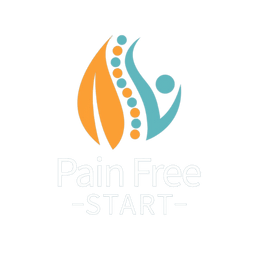Introduction
Whether you’re dealing with chronic pain from an injury, a medical condition like arthritis, or muscle soreness after a tough day, getting a good night’s sleep can seem like an uphill battle. Pain can make it difficult to fall asleep and lead to constant tossing and turning. In clinic I can spot the patients who are not sleeping the second they appear through the door. A restful sleep is crucial for both physical recovery and emotional well-being, making it an important topic to look at – your body is going to struggle to repair itself whilst you are tired. In this guide, we’ll explore actionable strategies to help you sleep better, even when pain makes it hard to rest.
How Pain Affects Sleep
Pain and sleep share a complex relationship. People experiencing chronic pain are more likely to struggle with poor sleep quality, which can, in turn, increase pain sensitivity. This cycle can lead to ongoing sleep problems and heightened discomfort. However, there are ways to break this cycle by addressing both the pain and the sleep disturbances.
1. Create a Sleep-Conducive Environment
The first step toward better sleep is ensuring your bedroom is set up to promote relaxation:
- Supportive Mattress and Pillows: Invest in a quality mattress and pillows that support your body and reduce pressure points. Different types of pain may benefit from different mattress firmness levels, so experiment to find what works best for you.
- Temperature Regulation: Keeping your bedroom at a comfortable, cool temperature can help ease physical discomfort. Use lightweight bedding or add layers as needed to maintain comfort throughout the night.
- Minimise Light and Noise: Reduce distractions by using blackout curtains and white noise machines, or earplugs if necessary. This creates a calming, restful environment that encourages sleep.
2. Develop a Pre-Bedtime Relaxation Routine:
A consistent routine before bed signals your body that it’s time to relax and prepare for sleep:
- Warm Bath or Shower: A warm bath can soothe sore muscles and joints, easing pain before bed. Adding essential oils like lavender may also promote relaxation.
- Gentle Stretching or Yoga: Light stretching or yoga can help relieve tension and stiffness, making it easier to fall asleep. Focus on stretching the areas where you feel the most discomfort. Try these simple stretches.
- Mindfulness and Relaxation Techniques: Meditation, deep breathing, and mindfulness exercises can help calm your mind and reduce the stress that often accompanies pain. These practices encourage mental relaxation, which can lead to physical relief.
- Reading for me always makes me sleepy but for others, it might get them more engaged. We are all different but I would struggle to finish 1 page before my book is abandoned and my eyes closed. The key is to be curious about these things try them and see what works for you.

LEARN MORE ABOUT HOW I CAN SUPPORT YOU, CLICK HERE.
3. Optimise Your Sleeping Position
The way you sleep can either relieve or worsen pain. Here’s how to position yourself for better comfort:
- Back Sleepers: Place a pillow under your knees to maintain spinal alignment and reduce pressure on your lower back and hips.
- Side Sleepers: Use a pillow between your knees to keep your spine aligned and relieve pressure on your hips, shoulders, and lower back.
- Stomach Sleepers: If you sleep on your stomach, try placing a pillow under your hips to alleviate strain on your lower back.
This blog may be helpful – Finding comfort in the night – the best sleeping positions for back pain relief.
4. Manage Pain Effectively Before Bedtime
Managing your pain before you go to bed can make a big difference in your ability to fall and stay asleep:
- Medication Timing: If you take pain medications, ensure you take them at the right time to provide relief during the night. Speak with your healthcare provider about the best schedule for your specific needs.
- Topical Pain Relief: Apply creams, gels, or patches containing pain-relieving ingredients like menthol, capsaicin, or lidocaine to the affected areas before bed.
- Heat or Cold Therapy: Depending on the type of pain you’re dealing with, apply a heating pad or ice pack before sleep. Ice can reduce inflammation and associated pain. Heat is better for relaxation and reducing muscle spasms.
5. Maintain Good Sleep Hygiene
Good sleep hygiene can significantly improve your ability to fall asleep and stay asleep, even when you’re in pain:
- Stick to a Sleep Schedule: Go to bed and wake up at the same time every day, even on weekends, to regulate your body’s internal clock. This is very important I’ve done it myself it’s so easy to get into a cycle of up at night and napping during the day but try and avoid this and if you are already in this cycle then take steps to move out of it. Limiting sleep during the day is the best place to start in my experience. That way you are more tired at night.
- Limit Stimulants: Avoid caffeine, nicotine, and alcohol in the hours leading up to bedtime, as they can interfere with your ability to sleep.
- Screen-Free Time: Turn off screens at least an hour before bed. The blue light emitted by phones, tablets, and TVs can disrupt your sleep-wake cycle.
6. Address Night-Time Disruptions
Pain can cause you to wake up during the night. If you find yourself unable to fall back asleep, try these tips:
- Get Out of Bed: If you’re awake for more than 20 minutes, leave the bedroom and engage in a relaxing activity like reading. Return to bed when you feel sleepy.
- Adjust Your Position: Sometimes changing your sleeping position or adding pillows for extra support can relieve discomfort and help you fall back asleep.
Conclusion
Sleeping well while dealing with pain is challenging, but not impossible. By creating a restful environment, establishing a pre-sleep routine, and managing pain proactively, you can break the cycle of poor sleep and discomfort. These strategies will not only help you get a better night’s rest but will also improve your overall well-being, enabling your body to heal and recover. Sleep well.
Take care, Helen
Helen Manders BSc (Hons) MCSP HCPC
Chartered Physiotherapist Since 2001
Struggling with BACK PAIN or ARTHRITIC KNEES? Help is at hand I have FREE masterclasses for each of these. You will leave understanding your problem better and what you need to do to improve or resolve it. Click the relevant body part to learn more about these FREE Programs.



